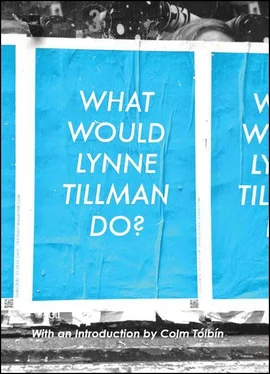The Rolling Stones, The Academy of Music, New York City, May 1, 1965
During college, I had to invent or reinvent myself every day, create a person who awoke, dragged herself out of bed, and went to class. I was morbidly depressed; life was futile. I had to move from despair and apathy to the shower, then find clothes to put on my naked body, even though for three years I wore a self-fashioned school uniform: Baggy Chinos and a long-sleeved, all-cotton, black T-shirt. A friend living near me on West 96th Street drove a Bucati, and when I could catch a ride on the back, getting to class was easier. She was depressed, too, but more manic, and sometimes she shouted above the engine and wind, “I want to kill myself.” I hugged her waist tighter then and felt my own desire to die tested.
I met my other best college friend in a required Introduction to Sociology class. She had a bad attitude like me, she was two years older, not a freshman, very cool, but then she disappeared for a while. “I dropped out,” she told me when she returned. She also told me to take studio art classes, and I did. I listened closely to everything she said, because she knew what was really happening; for instance, she knew the night Linda Eastman and Paul McCartney slept together for the first time.
The Beatles were cute, but they were too fresh and sunny for my dark, youthfully jaded, sort of hip character. The Rolling Stones existed for me and my friend, bad boys for bad girls. The Stones were anti-everything and suited my sensibility. My psychotherapist had asked me, “What do you want to do?” I said, “I want to rebel.” “Then,” she said, “my job is to make you effective.”
The Stones were rebels — at least their songs sounded rebellious — and they appeared effective. They could have whatever they wanted: sex, drugs, cars, houses, more sex, drugs. I didn’t question the implications of their being middle class boys, the Beatles working class boys, or what rebellion worked in them. I lived inside my troubled mind, and each day had to awaken in the same bleak and unchanging world and do what I’d done yesterday or something a little different.
Every night for dinner I broiled chicken wings and heated up canned, sliced beets. Like wearing the same shirt and pants to school, I ate the same dinner for three years, unless my knowing friend said, Come on, let’s eat out, or hear a band, or see a movie. Later, we shared a railroad apartment in the East Village. She fixed up her rooms reasonably, while I ripped plaster from a wall in one of mine, to uncover the brick, but it turned out to be the outside brick, so I stopped. The plaster lay on the floor of the room. I never cleaned it up; I couldn’t use the room anyway, because cold air blew in through the cracks.
My friend found out when the Rolling Stones were doing their first concert in New York: May 1st, 1965, at the Academy of Music. “Satisfaction” wouldn’t come out in the States until June 1965, but we were already hardcore fans. We had to be at the Stones’ triumphal entrance into our city.
The Academy of Music was on 14th Street between Third Avenue and Irving Place, where the Palladium would be in the ’80s. The first Academy of Music was a grand opera house, built in 1854 on the northwest corner of Irving Place and demolished in 1926. The Stones played the second Academy, erected in the ’20s across the street from the original. This one showed movies from the ’20s on, but by the ’60s, it was mostly a concert hall. Its marquee letters broken, its seats uncomfortable and seedy, its brilliance and glory faded, the Academy of Music was the right theater for the Stones, who were uncomfortable to parents, and seedy and glorious in their own way.
We sat in the balcony, or we sat downstairs; wherever we sat, my sight lines weren’t impeded. I’m short and saw everything that happened, and a lot did and didn’t. Opening for the Stones, Patti LaBelle and the Bluebelles, which was how she was billed, as a girl band. In their ice blue, space-age costumes and feather headdresses, with Patti’s big voice and their choreographed moves, they rocked. But the audience was indifferent. Stones fans were sullen like the band, and also we were there only for them. Patti must have been onstage an hour, and the audience grew restive. When the set ended, the group received some applause, but they didn’t get an encore. They were really fine; we were just lousy for the Stones.
Then nothing, and nothing, and time went by, and no one came on stage, and nothing, and we were waiting and waiting. After a while, someone in the audience roared something, or there was an outbreak of off-the-beat white people’s clapping, and a few dispirited, feeble calls for the Stones. Waiting, we turned more sullen.
Where were the fucking Stones.
Forty-five, maybe 50 minutes passed. I don’t know how long it was, but still nothing. We were angry already; it didn’t take much to make us angrier. Where were the Stones. Where were the Stones. The question was our breath.
People had slumped and settled into their lumpy seats, passive and aggressive both, because there was nothing to do but wait or leave, so we were trapped because we wanted the Stones. Wanting was hell, and while existentially waiting is all there is to do, we didn’t like it. There was no clapping now, no sudden shouts for the Stones, just enraged sedentary bodies.
Then they walked out. They just walked onto the stage, as if they were going to the men’s room. They had no affect. There was no jumping or dancing or mugging. They walked onto the stage and plugged in their instruments and took their positions. They didn’t look at us, not once, except for Mick. Mick came to the front of the stage and sort of said, “Hello, New York.” He tried a little, but the rest of the band didn’t care. They didn’t want to be there, and they ignored us. Mick made another pathetic effort, that’s all it could be: “Hello, New York.”
Brian Jones sat down on the floor. He was stage right, his head down, blond hair splayed over his face obscuring him further, his instrument lying in his lap. Maybe it was his Vox teardrop guitar or a Vox Phantom. He never looked up, the group didn’t look at us, they looked bored, and only Mick exerted himself a little, threw off some energy, but he didn’t try long. We were angry, deadened, too, and quickly Mick accepted defeat. Listlessly, the Stones started their first number. Probably they were very stoned.
A matron stood at the edge of the stage, on the same side as Brian, but at the top of the stairs, which was the only way up there, except for leaping. She was a heavyset black woman, about 30—I don’t remember any black people in the audience — and she wore some kind of theater or usher uniform. She faced the audience, grim and solemn, with her arms crossed over her chest. The Stones were playing, and Mick was singing, Brian was sitting on the floor, head down, and I don’t remember what Keith was doing, but he wasn’t crouching the way he does now and uncoiling like a rattlesnake to strike. Charlie Watts was Charlie Watts, steady, imperturbable, playing the drums the way he’s always played the drums, and Bill Wyman was himself, unmoving and dour.
There was a kind of stasis on stage, and in the audience. Into the third song, a hefty, dark-haired girl made a run for the stage, and up the stairs. But when she reached the top of the stairs, the matron blocked her. She gave her the hip. The girl flew down the stairs. One move, down she tumbled. The girl landed on the floor, stood up, and walked back to her seat. That was it, that was our resistance. The matron crossed her arms over her chest again and glared at us. The audience became more frustrated. The Stones hadn’t even noticed, and nothing happened again, and not one of us yelled or stood up, either, and soon the atmosphere turned solidly against the band.
Читать дальше












